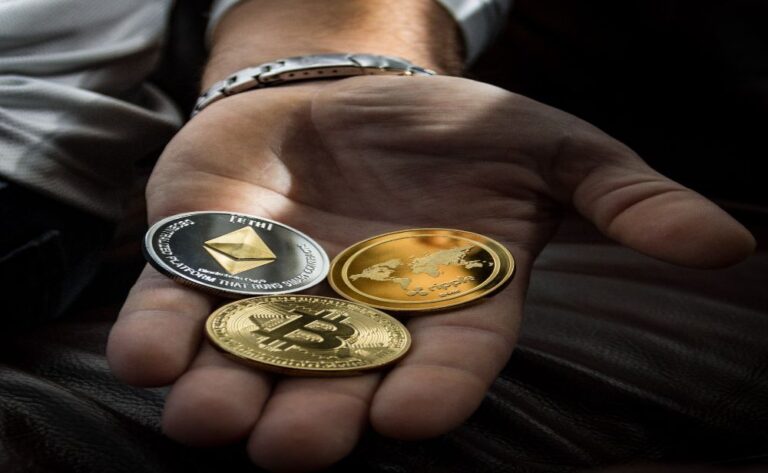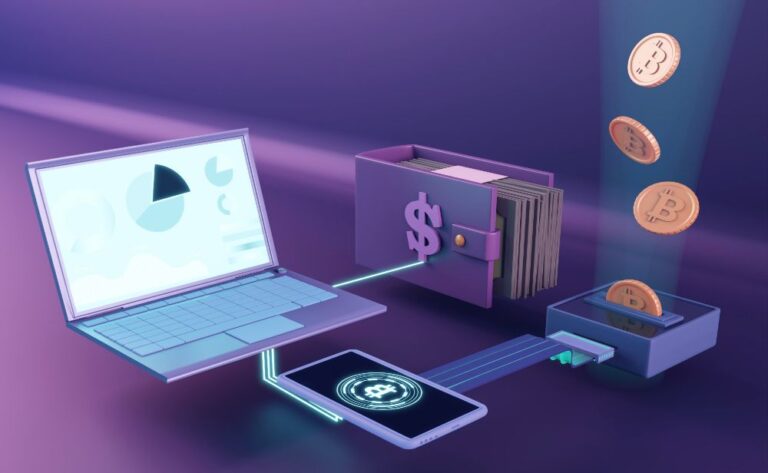9 common cryptocurrency scams in 2022

Scams involving cryptocurrencies are becoming more common, and con artists are employing both new and traditional methods to steal money. Phishing, rug pulls, and Ponzi schemes are three of the most recent forms of financial fraud.
When it comes to matters involving money, cons are always close behind. Additionally, the same may be said of cryptocurrencies.
Following a cyber assault in February 2022, the cryptocurrency exchange platform known as Wormhole sustained a loss of 320 million dollars. In addition to this incident, bitcoin scammers have been responsible for the theft of over one billion dollars worth of cryptocurrencies since 2021, according to a report published by the Federal Trade Commission (FTC).
The owner of digital currency can convert it into cash by transferring it to a traditional bank account. Digital currency is a form of currency that can be saved in a digital wallet. There is a distinction to be made between digital currency and cryptocurrencies like bitcoin. Because it does not go via any banking institutions and uses blockchain for verification, it is more difficult to get your money back if it is stolen.
Even though bitcoin is a more recent development, thieves are nonetheless employing the same old strategies. The following is a list of some of the most prevalent bitcoin scams that you should look out for.
1. Bitcoin investment plans
Swindlers who are perpetrating bitcoin investment scams will contact potential victims and pose as experienced “investment managers.” As part of the con, the so-called investment managers claim to have made millions investing in bitcoin and assure their victims that they will make money with investments if they follow the so-called managers’ investment advice.
The con artists require an up-front payment before they will begin their scheme. The perpetrators of the crime then take the upfront payments without even attempting to turn a profit. Scammers may also try to obtain a person’s personal identity information by pretending that they need it for the purpose of transferring or depositing payments. This allows them to gain access to the victim’s bitcoin.
Using phoney endorsements from well-known celebrities is another common form of investment fraud. Swindlers use real photographs and superimpose them on fictitious profiles, advertisements, or articles in order to give the impression that a celebrity is endorsing an investment opportunity that promises substantial financial returns. These statements originate from what appear to be credible sources, such as ABC or CBS, which have websites and logos that are designed in a professional manner and give off an air of credibility. However, the endorsement is bogus.
2. Rug pull scams
Rug pull scams are a type of investment fraud in which con artists try to obtain financing by “pumping up” a new project, nonfungible token (NFT), or coin. After they have obtained the money, the con artists will then vanish with it. Because the code for these investments precludes users from selling bitcoins after they have been purchased, they are stuck with an investment that has no value.
One common variation of this con was known as the “Squid coin scam,” which got its name from the popular Netflix series “Squid Game.” Investors were required to play games in order to gain cryptocurrency: players would purchase tokens for online games in the hopes of earning additional tokens in the future, which they could then trade in for other cryptocurrencies. After starting at a value of 1 cent per token, the price of the Squid token has now increased to approximately $90 per token.
After some time, trading came to a halt, and the money vanished. As more and more people tried to sell their tokens without success, the value of the token eventually approached zero. Approximately three million dollars was taken from these investors by the con artists.
Rug pull scams are especially frequent for NFTs, which are digital assets that are completely unique to themselves.
3. Romance scams
Scams involving cryptocurrencies are not uncommon on dating apps. These cons centre around relationships, which are almost always conducted solely online and are long-distance when possible. During these relationships, one side takes their time to win the other party’s trust. Over the course of time, one side gradually begins to convince the other party to either buy or give money in the form of some type of cryptocurrency.
The person who perpetrated the dating fraud vanishes after taking the money. These cons are also known as “pig butchering scams,” which is another name for them.
4. Scams including phishing
Scams involving phishing have been around for quite some time but continue to be widespread. Scammers will send emails containing malicious links that lead to a false website in order to collect sensitive information, such as the key information for bitcoin wallets.
Users of digital wallets are only given one private key per, in contrast to the use of passwords. However, if a private key is lost or stolen, changing this key might be a difficult process. Because each key is exclusive to a wallet, the person will need to generate a brand new wallet in order to update this key.
Never enter sensitive information from a link in an email in order to prevent falling victim to a phishing scam. Always navigate directly to the website in question, regardless of how credible the website or link may appear to be.
5. Attack with a “man in the middle”
Scammers have the opportunity to obtain users’ private and sensitive information whenever the users check in to their bitcoin accounts in public places. Any information that is communicated via a public network, such as passwords, bitcoin wallet keys, and account information, is susceptible to being intercepted by a con artist.
Using the “man in the middle” attack methodology, a thief is able to steal important information from a user whenever the user is logged in to the system. This is accomplished by intercepting Wi-Fi signals on trusted networks that are nearby, provided that the networks are close enough.
Utilizing a virtual private network (VPN) to eliminate the possibility of a man in the middle attack is the most effective strategy for warding off such assaults (VPN). All of the data that is being transmitted is encrypted via the virtual private network (VPN), making it impossible for hackers to access private information and steal cryptocurrency.
6. Fraudulent schemes involving cryptocurrency giveaways on social media
On many social media platforms, there is a large number of bogus posts that promise bitcoin giveaways. As part of some of these cons, bogus celebrity accounts are used to promote giveaways in an effort to attract potential victims.
However, if a user clicks on the offer, they will be redirected to a bogus website that will require them to verify their identity before they can receive the bitcoin. In order to demonstrate that the account in question belongs to a real person, the verification process requires a payment to be made.
This payment may be lost by the victim, or, even worse, they could click on a fraudulent link, which would result in their personal information and cryptocurrencies being taken.
7. Ponzi schemes
Ponzi schemes are financial scams that pay returns to elder investors using the funds from newer participants. Scammers in the cryptocurrency industry will use bitcoin to solicit new investors as a means of attracting them. It is a scam that goes around in circles because there are no real investments; the scheme is focused entirely on soliciting financial backing from new investors.
The promise of enormous gains with relatively low levels of risk is the primary allure of a Ponzi scheme. However, there is never a lack of dangers associated with these investments, and there are no profits that are guaranteed.
8. Fraudulent digital currency trading platforms
Swindlers may entice potential investors by making false promises of a profitable cryptocurrency exchange or even the acquisition of additional bitcoin. However, in reality, there is no exchange, and the investor does not discover that it is a scam until after they have lost their initial investment.
If you want to avoid dealing with an unfamiliar exchange, you should stick to well-known cryptocurrency exchange marketplaces such as Coinbase, Crypto.com, and Cash App. Before inputting any of your personal information, you should first do some research and visit the website of relevant industry organisations to learn more about the legitimacy and reputation of the exchange.
9. Fraudulent job applicants and employment opportunities
Con artists will also pose as job searchers or recruiters in order to gain access to cryptocurrency accounts. By using this ruse, they promise to provide job training for an intriguing position, but they want payment in bitcoin.
When hiring remote workers, there are also cons to watch out for. For example, North Korean IT freelancers are attempting to profit from remote job opportunities by submitting outstanding resumes and claiming to be situated in the United States. The United States Department of the Treasury has issued a warning regarding a scam that is being perpetrated by North Korea against bitcoin companies.
Freelancers in the field of information technology who look for assignments involving virtual money and access to currency exchanges. After that, they break into the systems in order to either steal information or raise money for the Democratic People’s Republic of Korea (DPRK). These personnel also engage in other professional IT jobs and utilise their skills to get insider access to enable the DPRK’s hostile cyber attacks. In addition, they are responsible for maintaining the DPRK’s information technology infrastructure.
How to ensure the safety of bitcoin and other cryptocurrencies
Here are some of the most typical warning signs that can alert you to potential bitcoin scams:
• assurances of enormous profits or a double of the first investment;
• not taking any other forms of payment besides cryptocurrencies;
• contractual obligations;
• mistakes in spelling and grammar in e-mails, social media posts, or any other form of communication;
• strategies of manipulation, such as blackmailing and extortion;
• assurances of access to free money;
• phoney endorsements from celebrities or social media influencers, which are out of place;
• a minimum of information regarding the flow of money and the investment; and
• a number of separate transactions inside a single day
Practices such as using strong passwords, only secure connections (such as those provided by a VPN), and selecting safe storage are some of the good digital security habits that can help protect digital wallets from fraudsters. There are two distinct categories of wallets: hardware and digital. Because they are hosted online, digital wallets are more susceptible to being hacked than traditional wallets. The cryptocurrency wallet and its associated private keys are among the types of data that can be offline-stored within a hardware wallet.
Because the Federal Deposit Insurance Corporation does not cover cryptocurrency transactions, it is critically important to store it in a secure location. Never share the keys to your wallet or the access code with anyone.





